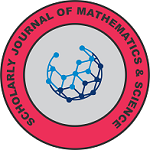Author: Jon Cogburn
Department of Philosophy and Linguistics Program
Louisiana State University
Emails: jcogbu1@lsu.edu | joncogburn@yahoo.com
Abstract
Church’s Thesis states that every intuitively computable function is recursive. This ends up being very problematic for the intuitionist. On the one hand, it is a key premise in two prima facie compelling arguments for logical revision. In The Taming of the True, Neil Tennant has recently argued that Dummettian Anti-Realism, Church’s Thesis, and the principle of excluded middle together contradict the undecidability of Peano Arithmetic.[1] If Tennant is also right in his assertion that Michael Dummett’s own arguments for intuitionist revision are fallacious, then the case for intuitionist revision stands and falls with Church’s Thesis. Likewise, formulations of Church’s Thesis put forward by intuitionists have long been known to be intuitionistically consistent with the Peano Axioms yet classically inconsisistent with them! While this is perhaps more tendentious than Tennant’s argument,[2] one might interpret this result in a similar manner. If Church’s Thesis is true, then (since the Peano Axioms are true), classical logic is mistaken. On the other hand, it has also long been known that Church’s Thesis entails the incompleteness of intuitionistic logic.[3] In addition, and potentially much more problematic, Church’s Thesis undermines the Brouwerian epistemology of mathematics that motivated early intuitionism.[4] It follows from Brouwer’s conception of the creative subject that for every set of natural numbers there exists a computation by which one can determine if an arbitrary number is in the set. But, as Kripke pointed out to Kreisel,[5] one can intuitionistically prove that it is not the case that every set of natural numbers is recursive. But then, Church’s Thesis entails that Brouwer’s creative subject can’t exist, as Church’s Thesis and Kripke’s insight immediately entail that it’s not the case that every set of natural numbers is computable.
Keywords: Deconstructing Dummett’s, Anti-Realism

